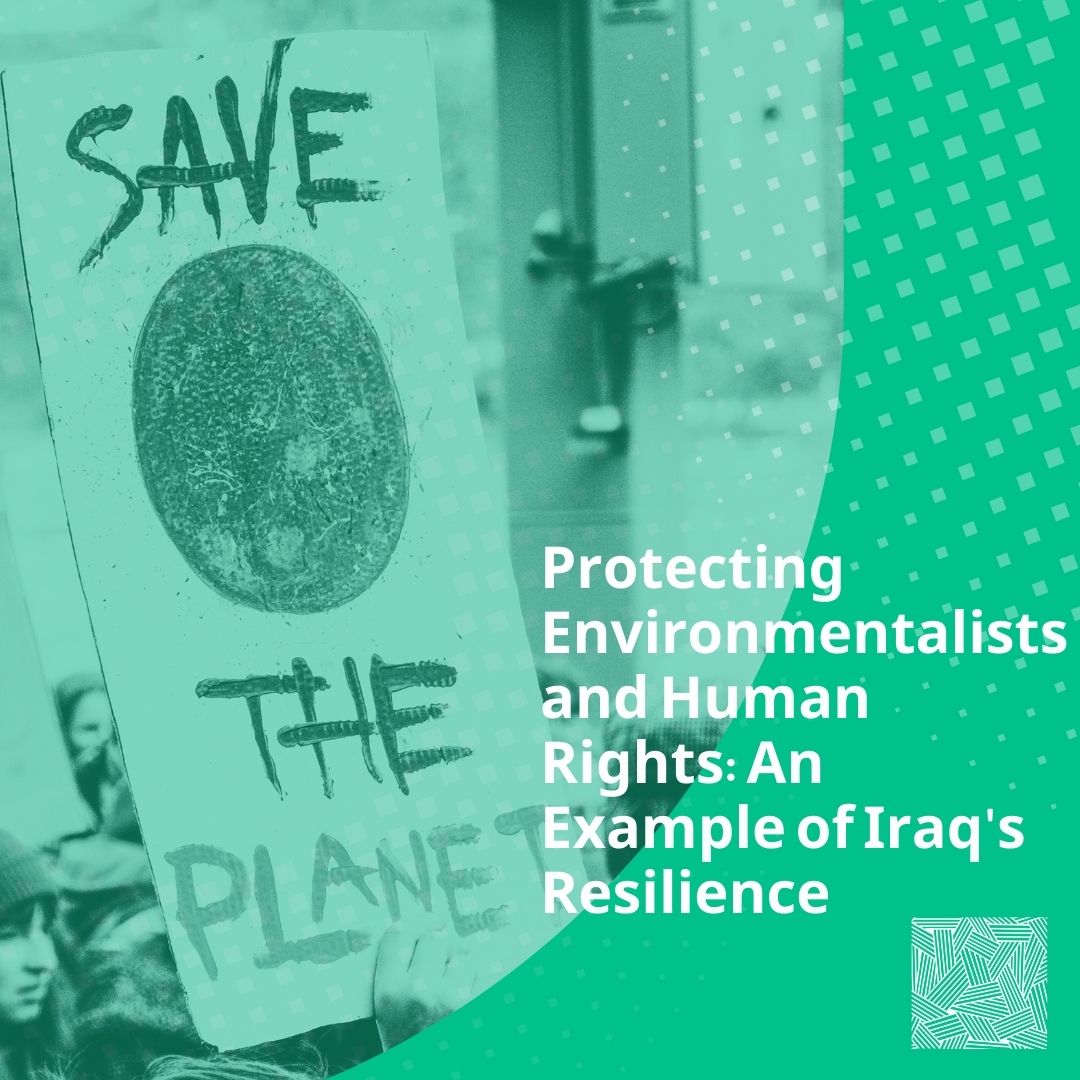
Iraq faces increased vulnerability due to significant environmental degradation and neglect, lack of legal and regulatory frameworks for environmental management, and limited institutional capacity. The country is grappling with rising temperatures, diminishing rainfall, increasing droughts, and scarcity of water resources. These issues are compounded by neighboring nations’ water policies that curtail water sources, intensifying the pressure on Iraq’s already strained water resources. The resulting environmental crisis has sparked numerous protests, including those in Basra in 2018, which highlighted concerns over water scarcity, as well as recent protests in Dhi Qar in 2023, condemning violent actions against individuals, revealing the consequences of poorly managed droughts and contributing to water scarcity.
A strong campaign, implemented by the Continuous Women’s Capacity Development Organization as part of the subgrants activity by Innovation for Change MENA and the Gulf Centre for Human Rights (GCHR), emerged in response to the grave implications of climate change and the shrinking civic spaces in Iraq. Advocating for the protection of environmental activists and promoting the protection of human rights in the challenging environment of Iraq, the ‘Climate Prospects Campaign’ has come to stand for resiliency.
This campaign, launched in September and running through October 2023, brought together different Iraqi human rights organizations, including the Iraqi Women’s Network, the Continuous Women’s Capacity Development Organization, and the Al-Tawahhuj Organization for Development and Human Rights.
The aim of the Climate Prospects Campaign was to increase public awareness of the issue of climate-induced forced displacement and to denounce the serious human rights violations perpetrated by Iraqi authorities, characterized by targeted attacks on climate activists in Iraq during peaceful protests. The campaign encouraged Iraqi authorities to cease these deliberate practices. It sought to foster a broader understanding of the link between climate justice and human rights, urging both the authorities and armed groups to refrain from retaliating against environmental activists or protesters.
The campaign also successfully engaged in advocacy efforts aimed at establishing a national strategy to address and combat climate change. These efforts included targeted engagements with policymakers, community leaders, and environmental experts, emphasizing the inseparable link between climate justice and human rights. Additionally, the campaign developed an interactive map to record cases of forced displacement caused by climate change, marking a significant step forward. This platform, accessible at https://cdm-iq.com/, facilitates in-depth research and visualization of the displacement issue. It also informs the public and decision-makers about the human rights abuses resulting from climate change in Iraq.
The campaign’s impact extends beyond merely spreading awareness online. Comprehensive position and policy papers were formulated, offering recommendations for addressing climate change challenges and protecting peaceful protesters and environmental activists. The creation of these papers was informed by consultation sessions with Iraqi civil society organizations, local authorities, and environmental activists. Representatives from civil society, environmental groups, and governmental organizations participated in the campaign’s final dialogue session. This session aimed to lay the groundwork for future collaborations based on the points and proposals raised in the policy paper.
Jassim Al-Asadi, a well-known environmental activist renowned for documenting the effects of climate change on the swamps, is a prominent figure in this movement. Despite being kidnapped and subjected to torture by an armed group attempting to silence him, Al-Asadi’s perseverance has only increased. His experiences have made him an invaluable witness for the campaign, highlighting the significant challenges faced by environmental activists in Iraq.
Positive responses from local officials indicate a rising recognition of how climate change affects citizens, particularly during protests. The Climate Prospects Campaign is testimony to the transformational potential of collective action. This effort demonstrates how communities can unite around a common goal and bring about positive change, even amidst significant challenges.